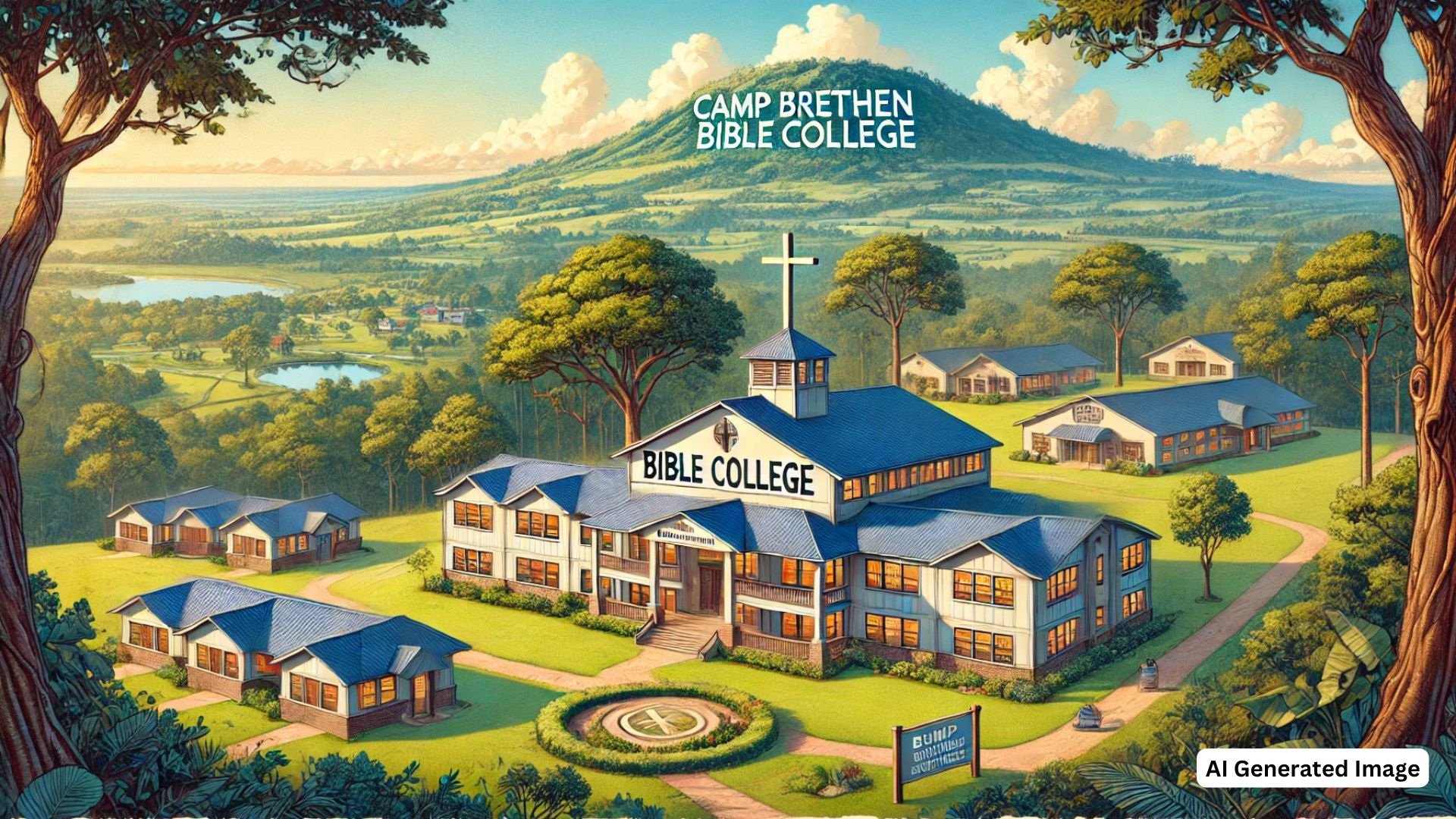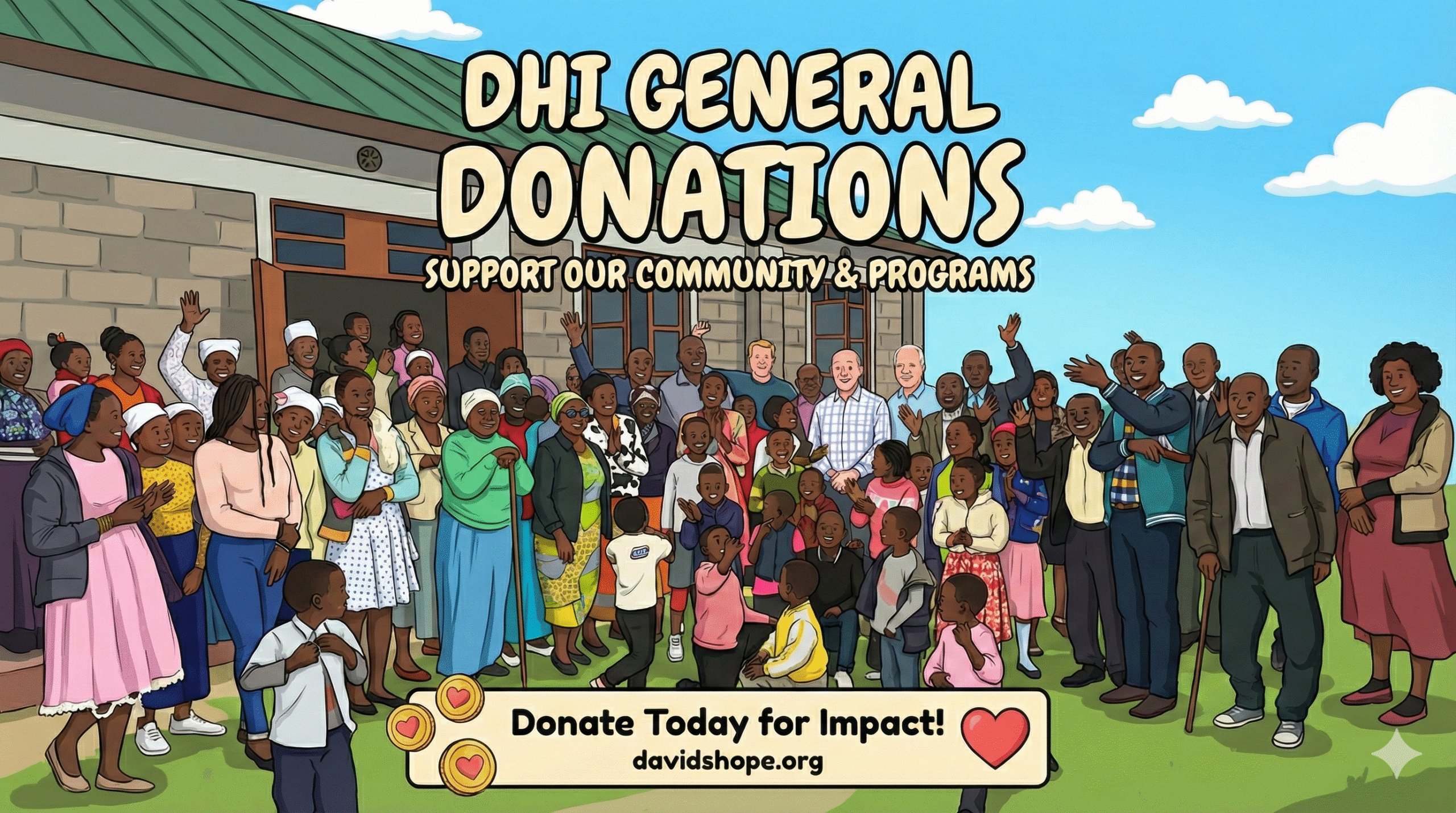Blog Post: Things are Changing by Kevin Wiley
I traveled to Eburru, Kenya in December on behalf of David’s Hope. It’s the third time I have visited and the second time in 14 months. Back in October 2010, I was impressed to see the amount of change that was taking place in Eburru as a result of Camp Brethren Ministries (David’s Hope’s local partner). There was a primary school and a clinic where there was only a field before. There was quality education underway for those that previously couldn’t afford school. Breakfast and lunch for kids who used to go without. And, there was a church and a growing community of neighbors who were caring for one another thanks to the work of God in their lives.
All that is still there. But there is so much more. The amount of development that has occurred in a year around the Camp Brethren school and the clinic is remarkable. To the David’s Hope supporters – we thank you for your loving support over this last year. The growth there is a testimony to your generosity as well as Camp Brethren’s faithful stewardship and God’s goodness. The ability of Camp Brethren to effectively manage and stretch the funds David’s Hope has been able to provide is amazing to see. Below are just a few of the changes taking place in Eburru.
Orphanage
 In 2010, an orphanage was built to support some local children whose parents/guardians are unable to provide the basic necessities for them. Today, there are twelve boys and girls living in the orphanage and another 6 are likely to move in when the school opens again in January. While I was visiting Eburru, the school was closed due to winter holiday and because there aren’t fulltime dorm parents yet, the orphanage too was closed. The orphanage (dorm) kids had returned back home to stay for the winter break. However, everyday several of the kids would come to the school just to get breakfast and lunch and hangout for the day. This school has become a place of safety, love and hope throughout the community.
In 2010, an orphanage was built to support some local children whose parents/guardians are unable to provide the basic necessities for them. Today, there are twelve boys and girls living in the orphanage and another 6 are likely to move in when the school opens again in January. While I was visiting Eburru, the school was closed due to winter holiday and because there aren’t fulltime dorm parents yet, the orphanage too was closed. The orphanage (dorm) kids had returned back home to stay for the winter break. However, everyday several of the kids would come to the school just to get breakfast and lunch and hangout for the day. This school has become a place of safety, love and hope throughout the community.
Power
 There has never been any electricity for the general public throughout most of Eburru. No lights, heat. refrigeration or power for a PC. Let’s just say it gets very dark (and cool) when the sun goes down. Over the last year Kenya Power decided to run electricity out to additional areas of Eburru. Through David’s Hope supporters we were able to fund the necessary transistor to run power to the clinic and the nearby visitors huts. We hope to get power to the school soon.
There has never been any electricity for the general public throughout most of Eburru. No lights, heat. refrigeration or power for a PC. Let’s just say it gets very dark (and cool) when the sun goes down. Over the last year Kenya Power decided to run electricity out to additional areas of Eburru. Through David’s Hope supporters we were able to fund the necessary transistor to run power to the clinic and the nearby visitors huts. We hope to get power to the school soon.
Water
 Eburru is a very rural location sitting at 8200 ft elevation on top of volcanic grounds. There is no natural water and there are no underground aquifers to drill into. The only hope for water is rain or capturing condensation that forms over steam holes drilled into the ground. Thanks to support raised this year, Camp Brethren was able to drill holes and create a large condensation capturing system that now delivers clean running water to the school 24/7. Running water in Eburru. This is amazing.
Eburru is a very rural location sitting at 8200 ft elevation on top of volcanic grounds. There is no natural water and there are no underground aquifers to drill into. The only hope for water is rain or capturing condensation that forms over steam holes drilled into the ground. Thanks to support raised this year, Camp Brethren was able to drill holes and create a large condensation capturing system that now delivers clean running water to the school 24/7. Running water in Eburru. This is amazing.
Kitchen
 In 2010, Racheal the school cook was preparing all meals for the students, faculty and staff (~150) in a single large cauldron over an open fire. Daunting to say the least. Thanks to funding support from David’s Hope, Camp Brethren was able to expand the kitchen and outfit it with 4 large wood burning stoves. This can support the school and orphanage needs today, and importantly it will adequately support Camp Brenthren as the school and orphanage continue to grow over the years.
In 2010, Racheal the school cook was preparing all meals for the students, faculty and staff (~150) in a single large cauldron over an open fire. Daunting to say the least. Thanks to funding support from David’s Hope, Camp Brethren was able to expand the kitchen and outfit it with 4 large wood burning stoves. This can support the school and orphanage needs today, and importantly it will adequately support Camp Brenthren as the school and orphanage continue to grow over the years.




awesome update Kevin, great shots!